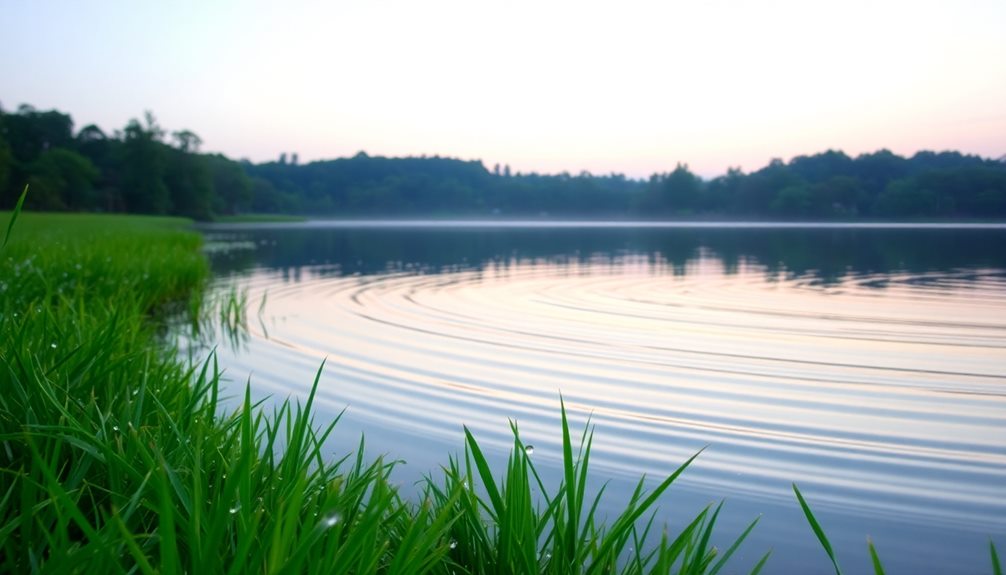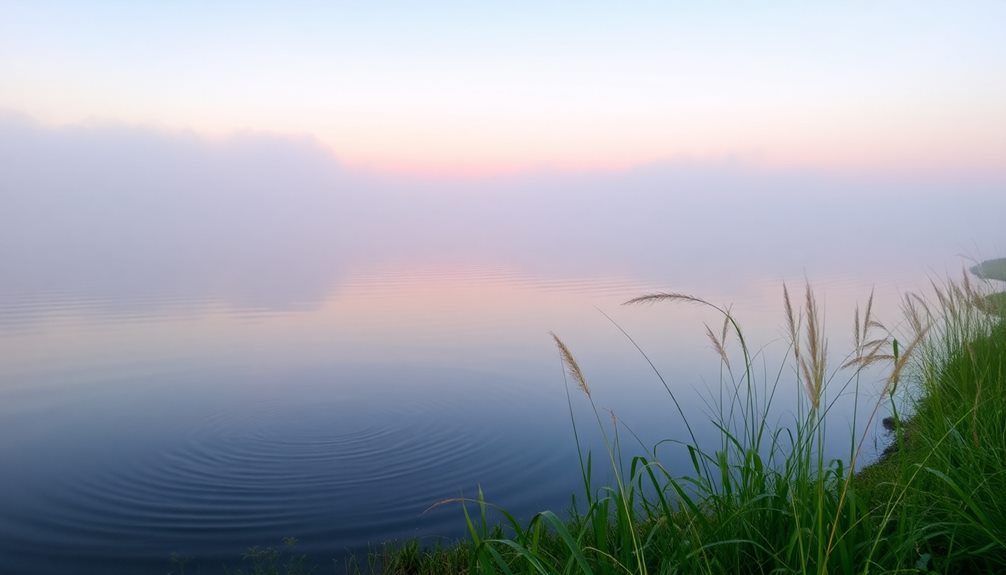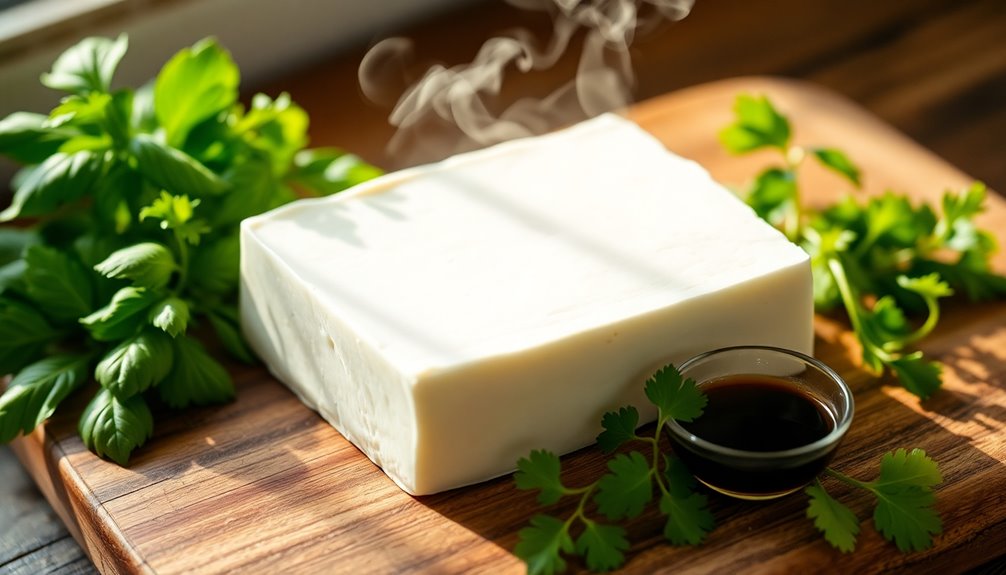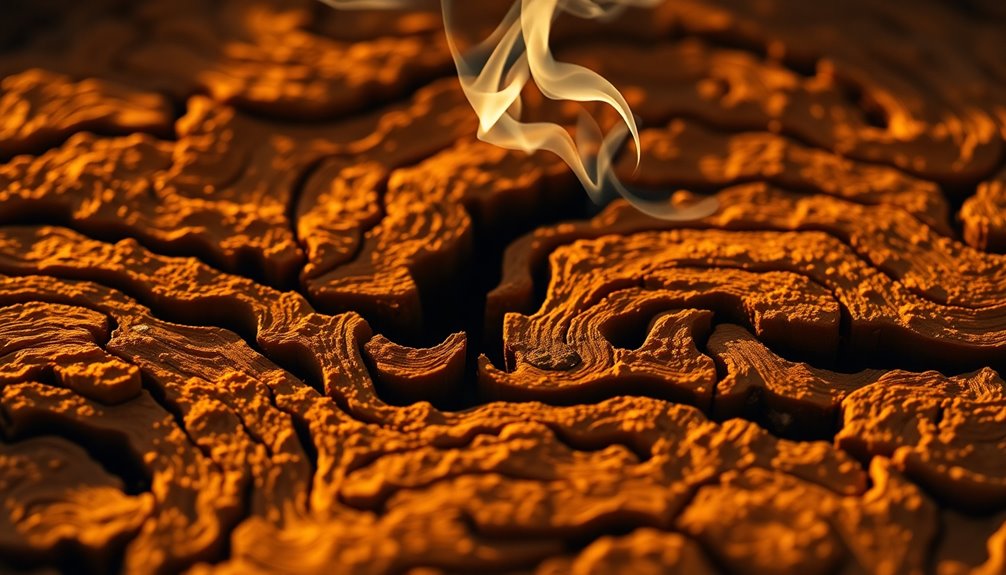Water can smell really different depending on where it comes from. If you taste a fresh mountain stream, you'll notice its crisp, clean scent, almost like rain. Tap water might have a sharp smell because of chlorine, while well water can bring earthy tones from minerals. Lakes can smell musty due to organic materials, and ocean water offers a salty, briny aroma. Each unique smell tells a story about water's journey. Understanding these scents not only makes you appreciate water more, but also helps in knowing if there might be a problem. Stick around to discover even more fascinating facts!
Key Takeaways
- Water's smell varies by source; fresh mountain streams smell crisp, while stagnant water may smell fishy or rotten.
- Tap water often has a faint chemical scent due to chlorine treatment, indicating its purification process.
- Well water may present earthy odors from minerals, reflecting its natural underground sources.
- Ponds and lakes can emit musty smells due to organic matter and algae growth, impacting their scent.
- Water's scent can evoke emotions and cultural memories, linking to experiences of nature and cleanliness.
Introduction

When you think about water, you might picture its refreshing taste or the way it flows, but have you ever stopped to consider its smell? Most people don't give it much thought, but water can have interesting scents that tell us a lot about its source.
Imagine taking a sip from a clear mountain stream or filling a glass from your kitchen faucet. Each source can offer a different experience, and that includes how it smells.
You might notice that tap water sometimes has a faint, chemical scent. That's usually from chlorine, which helps keep the water clean. On the other hand, well water can have a bit of earthiness, hinting at minerals it picked up along the way.
If you've ever been near a lake or ocean, you might recognize the fresh, salty aroma that comes from waves crashing on the shore.
Understanding water's smell can help you appreciate its journey from nature to your home. It reminds us of where water comes from and how it connects us to our environment.
Description of the Smell

Water's smell varies significantly based on its source and treatment.
When you take a sip from a fresh mountain stream, you might notice a crisp, clean scent, almost like the air after a rainstorm. This freshness can evoke feelings of tranquility and nature.
In contrast, tap water often has a more chemical smell. You might catch a hint of chlorine, especially if it's recently treated. This smell can be sharp and a little off-putting, but it's there to keep the water safe for drinking.
If you're near a pond or lake, the water might have a musty, earthy odor. It can remind you of damp soil or decaying leaves, connecting you to the natural cycle of life.
Sometimes, if water sits stagnant, it can even smell a bit fishy or rotten, signaling that it's not the best choice for a drink!
Source and Composition

The origin and makeup of water play a crucial role in determining its smell. Water is a simple molecule made up of two hydrogen atoms and one oxygen atom, but where it comes from can change its scent.
For example, fresh water from a mountain spring often smells clean and crisp, while water from a lake or river can have a different aroma due to the presence of algae, fish, or organic matter.
When you think about it, water isn't just H2O. It carries with it minerals and other substances that can affect its scent.
When water flows over rocks, it picks up minerals like calcium and magnesium, which can add a slight earthy smell. If the water's source is near a farm, it might even carry the scent of fertilizers or chemicals used in agriculture.
Typical Scenarios or Environments

Different environments can drastically influence how water smells, often reflecting the unique characteristics of the surrounding ecosystem.
Imagine standing beside a clear mountain stream, where the water smells fresh and crisp, like a cool breeze on a sunny day. The scent of clean, flowing water can make you feel invigorated and alive!
Now, think about a pond in a warm, sunny area. Here, the water might've a bit of a muddy or earthy smell, thanks to algae and decaying leaves. It's a reminder of nature's cycle, showing how everything is connected.
When you visit the ocean, the smell of saltwater fills the air, mingling with the scent of seaweed and maybe even a hint of fish. It's a lively, briny aroma that can transport you to the beach, making you want to dip your toes in the waves.
In your own home, tap water can sometimes have a slight smell of chlorine, a sign that it's been treated for safety.
Each of these scenarios reveals how water's scent can change based on where you are, inviting you to explore and appreciate the world around you.
Emotional or Cultural Associations

Water often evokes strong emotional and cultural associations that can vary widely from person to person. Think about the last time you heard a gentle stream or felt the splash of ocean waves. Those sounds might bring back memories of summer vacations or peaceful afternoons spent outdoors. For many, water symbolizes life, purity, and renewal, connecting to deep cultural practices and traditions.
In some cultures, water plays a vital role in rituals, representing cleansing and rebirth. You might recall a family gathering where everyone poured water over a plant, sharing hopes and wishes for the future.
For others, the scent of rain can stir feelings of comfort and nostalgia, reminding you of cozy days inside with a good book and warm snacks.
Even the smell of fresh, clean water can evoke happiness, like sipping from a cool glass after a long hike. Water's presence in your life can be both grounding and uplifting.
Health or Safety Considerations

Considering health and safety, it's essential to recognize that water quality can significantly impact your well-being. You mightn't think much about the water you drink, but its smell can tell you a lot about its quality.
If your tap water has a strange odor, it could mean there are harmful substances lurking inside. For example, a musty smell might indicate the presence of mold or bacteria, while a chlorine scent could signal that your water's been overly treated. Both can lead to health issues if consumed regularly.
Always trust your senses! If water smells off, it's best to avoid drinking it and seek alternatives, like bottled water or a filtration system.
Regularly checking your water source is also a smart idea. Testing kits are widely available and can help ensure your water is safe. You deserve clean and fresh water, so don't hesitate to ask local authorities about your water quality.
Final Thoughts

Understanding the significance of water quality is crucial for your overall health. When you think about it, water is everywhere in our lives. It's in the drinks we enjoy, the food we cook, and even the showers we take.
If your water has an odd smell, it can be a sign of something more serious, like pollutants or chemicals. You really want to pay attention to those signs!
Good water should smell fresh and clean. If it smells like rotten eggs or fish, don't ignore it! It's essential to investigate what's going on. Whether it's a simple fix, like cleaning your pipes, or a need for filtration, taking action is key.
Frequently Asked Questions
Does the Smell of Water Vary by Location?
Yes, the smell of water can vary by location. Factors like minerals, pollutants, and treatment processes affect it. So, when you're traveling, you might notice distinct scents in lakes, rivers, or tap water.
Can Water Smell Change With Temperature?
Yes, water's smell can change with temperature. As you heat it, volatile compounds release differently, altering the scent. So, if you notice a distinct aroma, it might be due to the temperature fluctuations.
How Does Water Smell Compare to Other Liquids?
When you compare water's smell to other liquids, you'll notice water generally has no strong scent. In contrast, liquids like vinegar or alcohol have distinctive aromas, making them more recognizable and impactful on your senses.
What Are Common Myths About Water's Smell?
You might think water has no smell, but some believe it can smell like fish or sulfur. Others argue that certain bottled waters smell better. These myths often stem from minerals or contaminants present in the water.
Does Bottled Water Have a Distinctive Smell?
Yes, bottled water can have a distinctive smell, often due to packaging materials or added minerals. You might notice a slight scent, especially with flavored varieties, but pure water typically has no noticeable odor.









